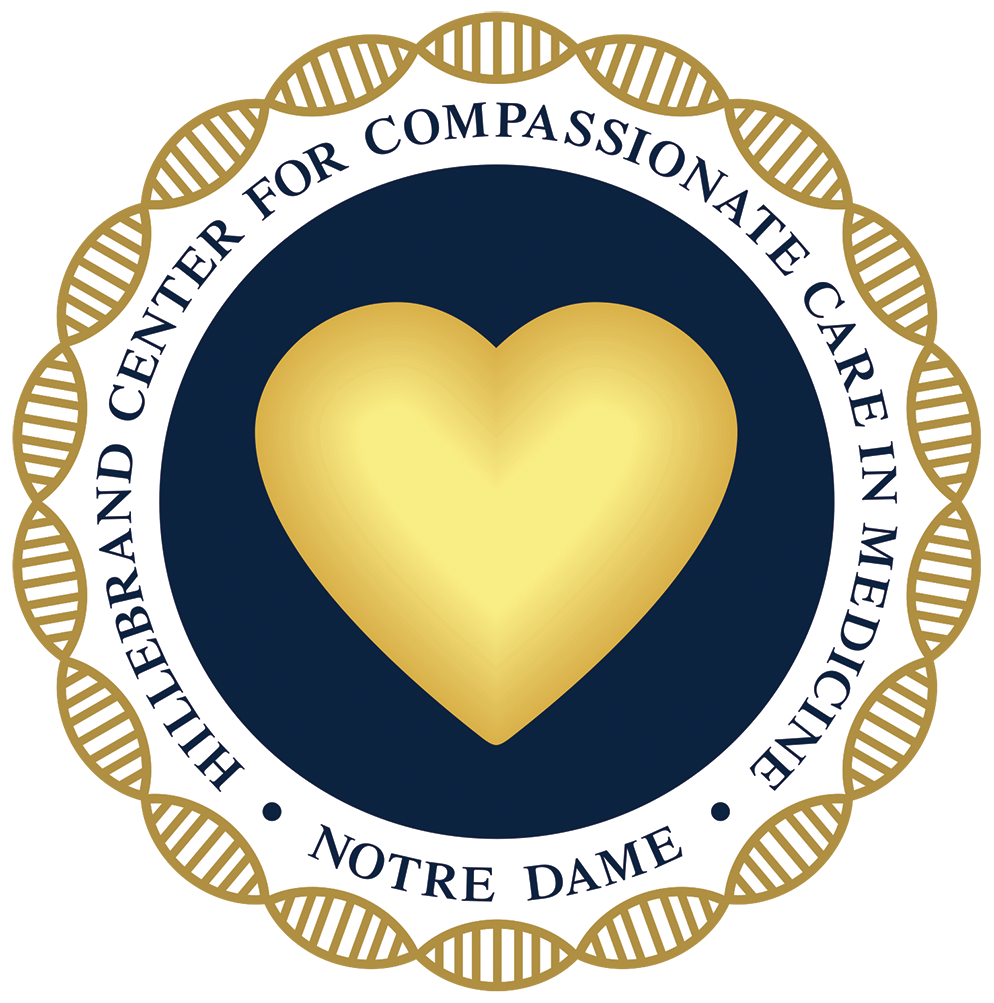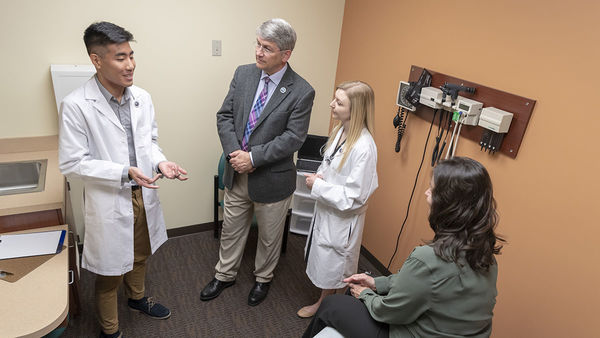
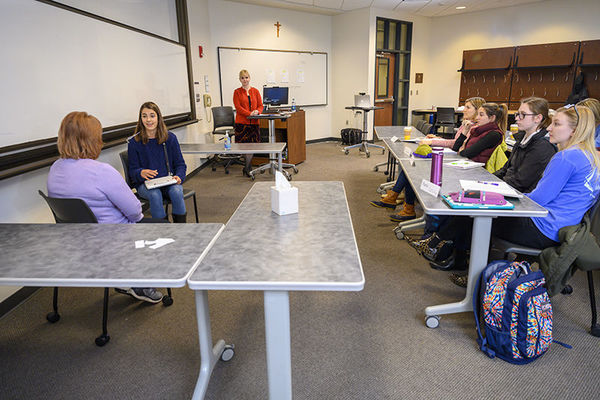
A face comes into focus on the Zoom call. The doctor takes a deep breath, ready to deliver a difficult diagnosis. But the patient is not a real patient - at least not now, and the “doctor” is not a doctor - at least not yet.
A scenario like this one plays out every week in the Hillebrand Center for Compassionate Care in Medicine’s Medical Counseling Skills and Patient-Centered Medicine course, in which actors help preprofessional students learn essential communication strategies. The class fosters empathy and interpersonal skills, fulfilling the Hillebrand Center’s mission to “restore the spirit of compassion in healthcare by advancing the application of the science of compassion at every level of medical training and practice to transform clinician well-being and patient care.”
Taught by Dominic Vachon, the John G. Sheedy, M.D., Director of the Ruth M. Hillebrand Center for Compassionate Care in Medicine, and Dr. Brandon Zabukovic M.D., adjunct professor and South Bend physician, the class includes its fair share of reading, lecture, and discussion. However, these acted-out medical scenarios set it apart from most other pre-med courses.
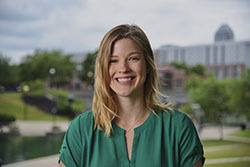
“All of the other classes I’ve taken in compassionate care in medicine culminated in this medical counseling skills class, because it was taking some of the scientific and theoretical knowledge that we’d explored and then actually having us able to apply it,” explained Leah Bode, a senior biochemistry major and compassionate care in medicine minor who enrolled in the course last fall.
The class begins with a pre-test, in which each student meets with a “patient” for the first time, and the semester ends with another one-on-one medical scenario. “I was surprised at how real it felt and how quickly we jumped in,” said Bode, who is also co-president of Notre Dame’s Compassionate Care in Medicine Club.
Throughout the semester, students observe their peers and the actors in a variety of simulations. Afterwards, they discuss the interaction. This format prepares students for medical-school classes, where they will often have to show what they know in front of a group, and also provides them with simulated patient contact that they might not experience in the first few years of earning their medical degree.
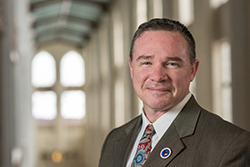
South-Bend-native Mat Ernsberger has worked with the Hillebrand Center’s medical counseling program since the course started eleven years ago, playing a variety of patient roles. “All of my characters have a sheet of information that gives a little information about this particular character, and then I try and inject some humanity into the black and white,” Ernsberger explained.
In fact, the course employs actors from a variety of ages and backgrounds to further simulate the diversity a doctor will see. These “patients” have a wide range of previous acting experience, as well. While Ernsberger has worked with a number of theatrical productions in South Bend, Juan Esteban Baus (BS ‘19, MS ‘20) had never acted before helping out with the medical counseling skills class. Baus took the course as an undergraduate at Notre Dame and has since stayed on campus for his masters in Global Health. Now, he serves as a research associate for the Eck Institute for Global Health with in collaboration with the St. Joseph County Health Department. For Baus, acting in medical scenarios highlighted how the strategies of empathy taught by the Hillebrand Center reach beyond patient-physician interactions to his own life and healthcare career.
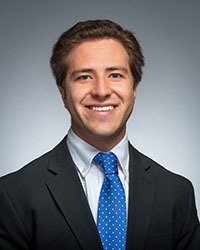
“You are setting yourself up to address these issues in others and then you are all of the sudden faced with the realization that these patients could very well be you,” Baus said.
With the ongoing COVID-19 pandemic, the medical counseling skills course had to make some adjustments last semester. Until they could safely stay more than six feet apart from the actors during in-person meetings later in the year, students consulted with “patients” over Zoom for the first couple of weeks.
But as Ernsberger explained, “These are new technologies and not hurdles so much [as] new opportunities for us to learn how to utilize this in the best way and still create that compassionate interaction.”
The course thus prepared students for the future of medicine as a whole, where practices like tele-health visits might become more commonplace, as well as their own upcoming occupations.
“I think it just helped me to really be able to visualize what my career will look like in a very tangible way and also recognize early on some of the strengths and weaknesses that I have in terms of communication,” Bode said.
Bode recommended that all students with an interest in the health professions should take this class, regardless of if they are minoring in compassionate care in medicine or even want to attend medical school. The skills she learned can create better physicians, dentists, chaplains, nurses, or social workers and even serve people completely outside of the medical world, because compassion is an asset in any field.
As Ernsberger explained, “These skills go beyond medical counseling skills. They go into listening to your friends, they go into problem-solving with work. You know, all of these skills that help each other help all of us.” Of his role in fostering these abilities, he added, “I’ve learned that I really love being a part of that.”
The Hillebrand Center is seeking individuals who would like to act in the Medical Counseling Skills and Patient-Centered Medicine course. If you are interested, please contact Rose Carroll at rcarrol4@nd.edu
Originally published by at science.nd.edu on February 24, 2021.

